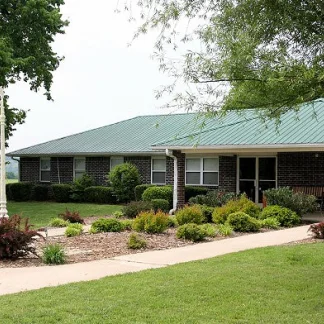Teen Challenge Adventure Ranch
Morrow, Arkansas, 19778 Boys Home Road, WC431, 72749
Available Programs
- Adolescence program
- Open beds : 10
- Program for men
- Total beds : 40
- Young adult program
Insurance and Financial
- Self-pay options
- Private insurance
About this Facility
Teen Challenge Adventure Ranch is a residential addiction recovery program for adolescent males in Morrow, Arkansas. They offer integrative, faith based treatment programs, including specialized services for clients with co-occurring mental health disorders. Their primary treatment modalities combine individual, group, and family counseling with evidence based complementary treatments, including adventure therapy.
Teen Challenge Adventure Ranch is a residential addiction recovery program located in a wilderness setting in Morrow, Arkansas. They specialize in treating adolescent males using an integrative approach that combines psychotherapy, addiction education and life skills development, spirituality, and complementary therapies.
Teen Challenge Adventure Ranch is a faith-based addiction recovery program and boarding school for boys aged 14 to 17. They provide a wide range of personalized, evidence based treatment modalities, including CBT based individual, group, and family counseling, adventure therapy, and experiential therapy. Their luxury treatment center features a secluded wilderness setting, mountain views, private rooms, recreational facilities, and a day school. Their program also offers a low staff to client ratio and accepts teen boys from across the United States.
Because persons experiencing substance dependency often have at least one underlying mental health condition, Teen Challenge Adventure Ranch prioritizes the mental health of their clients. They offer mental health assessments and specialized care for clients with co-occurring depression, anxiety, or other psychiatric conditions.
Teen Challenge Adventure Ranch provides an array of ancillary services to support families and teens in long term sobriety. These include intervention services, aftercare planning, family education, relapse prevention planning, and alumni support. Recovery focused education and training programs are also available, including courses in self care, coping, problem solving, stress and anger management, communication, career and financial management, and interpersonal relationships.
Teen Challenge Adventure Ranch is accredited by the Joint Commission and CARF. They accept self pay and private insurance.
Contact us for more information: (888) 289-6818

Contact Teen Challenge Adventure Ranch
Connect with Teen Challenge Adventure Ranch by calling their admissions team directly.
(888) 289-6818 Website Get Directions